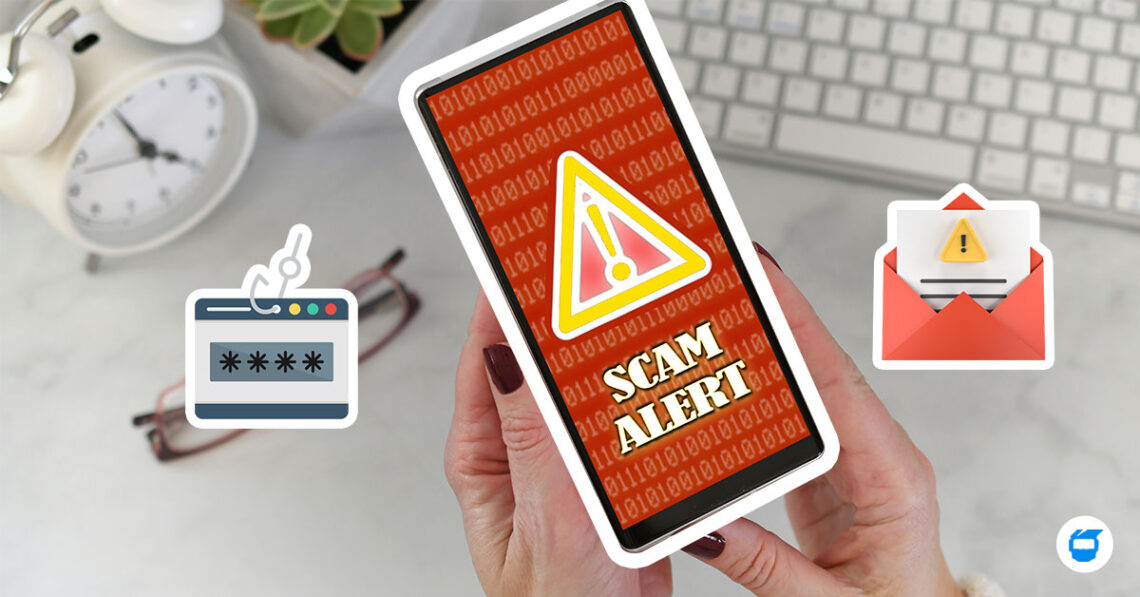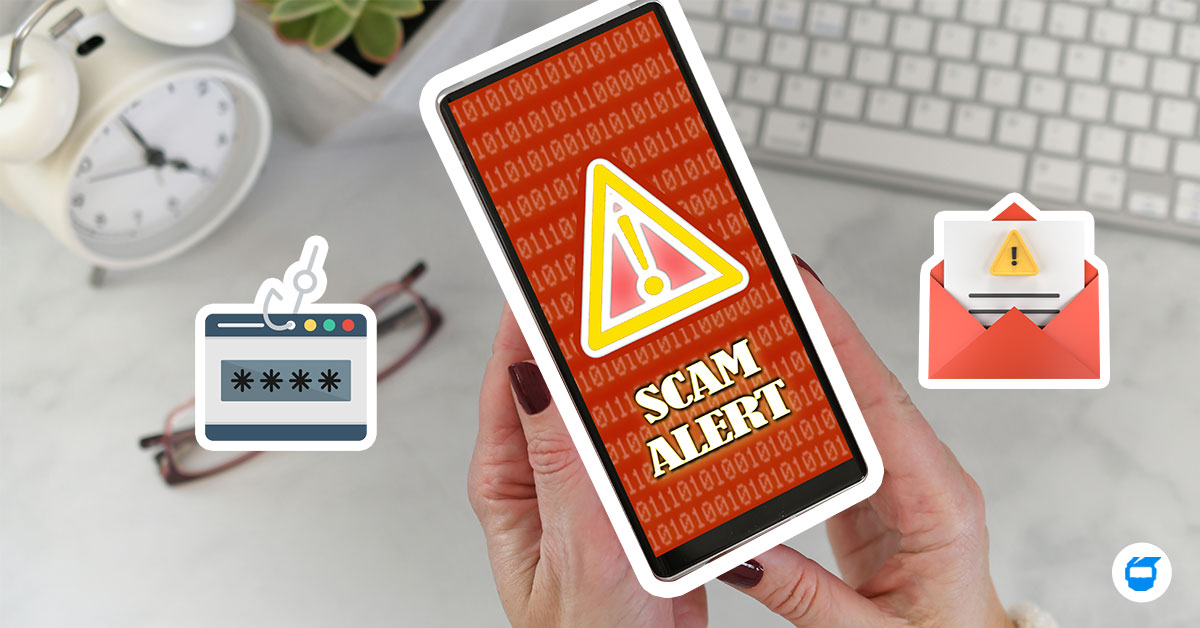Since the pandemic hit, people had to adjust to the “new normal” and shifted to doing almost every regular task online to avoid contact with others. With the internet and social media as the main tools for communication and transactions worldwide, online scams in the Philippines have become more prevalent, as scammers take advantage of digital platforms to steal money.

When community quarantine was implemented in the Philippines, cases of online scams and identity theft surged. Despite the global crisis, the Philippine National Police (PNP) and the Anti-Cybercrime Group (ACG) reported a significant rise in these cybercrimes. ACG records show that from March to September 2020, there were 869 online scam cases in the Philippines, marking a 37.28% increase compared to the same period in 2019. Similarly, online identity theft grew by 21.27%, with cases rising from 298 to 362 in just seven months (PhilStar Global).
There are different types of online scams in the Philippines, each targeting various platforms. In this article, we will break down the most common scams you should be aware of and how to protect yourself from them.
Table of Contents
- Online Banking Scam
- Online Shopping Scam
- Online Identity Theft
- Money Mule Scam
- Email Spoofing
- SMS Phishing
- Online Lottery Scam
- Online Investment Scam
- Recruitment Scam
1. Online Banking Scam
Without the risk of online banking scams, online banking alone is incredibly convenient, especially during this pandemic, where online transactions are preferable to avoid contact with people. However, as convenient as it is, it also comes with risks. With the rise of online scams in the Philippines, it’s important to stay vigilant. To avoid falling victim to these scams, take note of these three common online banking scams:
SIM Swap Scam
The SIM swap scam is a new online fraud in the Philippines and may not be familiar to some. It is also known as “palit SIM.” What the scammers do is they either pretend to be a legitimate mobile subscriber or an authorized representative of the mobile subscriber. They will eventually request the telecommunication company for a SIM replacement and use the mobile number of the victim to access personal information, like bank accounts and credit card details.
ATM Skimming
You need to be extra careful with this type of online banking scam as it can go unnoticeable. Frauds plant an illegal skimming device on the face of an ATM that would look like it is a part of the machine. This illegal skimming device will be used to read the magnetic stripe of any card that will be swiped on the machine, causing them to gain access to your account’s personal information and steal its details. They will use the personal information they gathered to make fake access to your bank account for cash withdrawals and fund transfers.
Email Phishing
Banks nowadays notify you through email about possible fraud to ensure that you will not fall for such email scams, and this is because email phishing being prevalent. Email phishing is an illegal activity that frauds use to trick you into filling out a form with your email password, card details, and other personal information. They disguise themselves in fake emails that tell you to click a link or download an attachment and make you believe that the message requesting specific personal information is urgent or needed by the bank. Like any other online banking scams, they will use the information they gained to make unauthorized transactions.
Take note that scammers may also fake a website and make it look like the bank’s actual online banking facility. If the contents of the email seem a little bit edgy, contact your bank personally, so they can verify whether the email was really from them or not.
2. Online Shopping Scam
Like online banking, online shopping can also be convenient because you don’t need to go out to buy what you need. With just a few browses and clicks, you can already make a purchase. But sadly, frauds use this platform as well to scam people.
Online shopping scammers usually pretend that they are legitimate sellers of a certain product using fake advertisements on social media, fake websites, and even on authentic e-commerce platforms. When the buyer is tricked into buying the product, the fake seller will make the buyer pay for the “non-existent” product, delivering nothing and running away with the money. Other online shopping scam tactics can be as simple as posting products that are very enticing to its audience, then delivering a completely different or fake product to the buyer. This is why you have to be mindful of where you are going to shop online. Make your purchases from trusted online sellers or if you decide to order from other shops that are not yet well-known for the quality of products and services, see to it that you do proper checking of details and reviews. Don’t just recklessly place orders.
3. Online Identity Theft
Scammers commit online identity theft by using stolen personal information to impersonate individuals for financial gain. In the landscape of online scams in the Philippines, fraudsters exploit this method to make it appear as though victims are the ones conducting transactions and transferring funds from their own accounts. Protecting yourself from online identity theft starts with being cautious about sharing personal information, especially when it involves your finances.
4. Money Mule Scam
Money mules or “smurfers” transfer illegally acquired money to you and will ask you to move the money electronically to bank accounts. Don’t easily trust emails and social media messages you receive from random people stating that they have a certain amount of money that they need you to transfer to another person or even easily give out your bank account details. Biting into this is a disaster waiting to happen. Being careless about this can get you involved in a crime. Always verify first where this is all coming from.
5. Email Spoofing
Email spoofing is when the emails sent contain a forged sender address. This also contains fake offers and asks for the person’s password as well as other personal information. Scammers use this as a tactic to disguise themselves and trick people into thinking that the email messages they received were from legitimate banks, trusted companies, etc.
6. SMS Phishing
Also known as SMSishing, SMS phishing is like email phishing, except that scammers attack through text messages, asking you to click a particular link. They may also try every tactic to get any personal information from you, so be vigilant and don’t give into it.
7. Online Lottery Scam
Scammers usually work their way and abuse the lottery system by extorting money and stealing personal information from you. They will use personal information to gain access to your bank accounts or will convince you to send them money. They will also make it seem like you won a jackpot or a huge amount of money and the only thing you need to do to claim it is to send them a “small sum” of money. But in reality, there really isn’t any jackpot and it will already be impossible for you to retrieve your money.
8. Online Investment Scam
Not all online investments are bad, however, you have to pay extra attention as there are also a lot of frauds out there who will use the online investment to steal money from you. Scammers use social media and other fake websites to entice people into investing in “quick return of investments.” But like any other scams, there is no real investment in the first place. Once the investment money is transferred, the scammer will run away with it.
9. Recruitment Scam
Recruitment scams involve fraudsters pretending to be employers to steal money or personal information. They often ask for upfront fees or sensitive details like bank account numbers. These scams can lead to financial loss, identity theft, emotional stress, and damage to your reputation. To protect yourself, verify job offers, be cautious of too-good-to-be-true roles, and avoid sharing personal info until you’re sure the job is legitimate.
Related: 6 Common Recruitment Scams to Avoid When Choosing an Overseas Employment Agency in the Philippines
Online platforms created specifically for hassle-free communication and transaction are really helpful, especially during this time when it requires little to no contact with people outside. Being aware of different online scams is one thing, the other thing is to keep a vigilant stance to avoid them from happening to you. Don’t quickly trust what you receive in your email or social media messages, especially if it concerns money. Always check or verify if it is from a legitimate source, such as a bank, company, or an individual you personally know. Keep in mind that scammers usually appear in their best form to make it seem safe, but in actuality, it is just too good to be true.
If you’re looking for someone to help keep your online business safe from scammers, contact us today, and we’ll be glad to help you!














